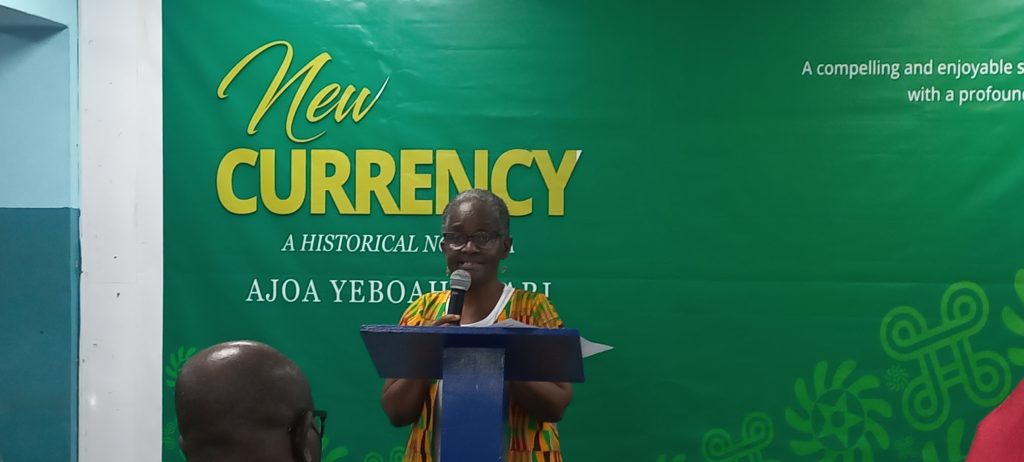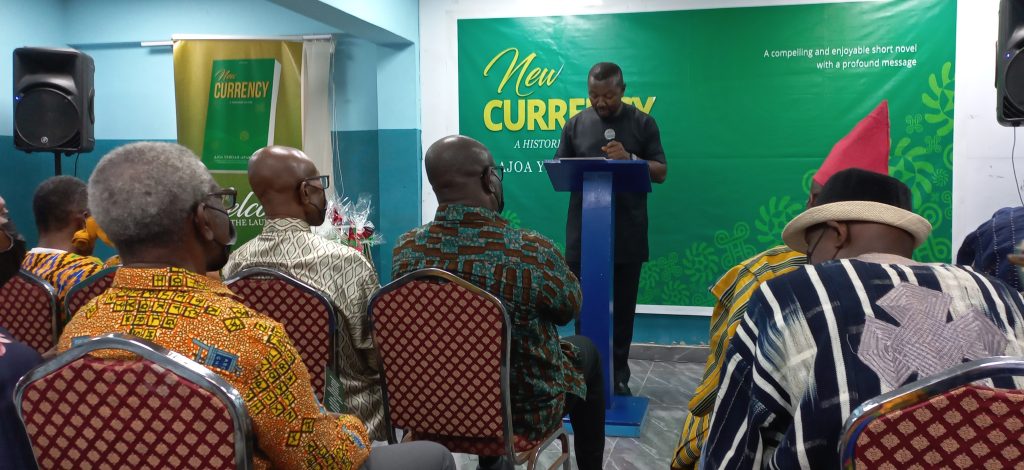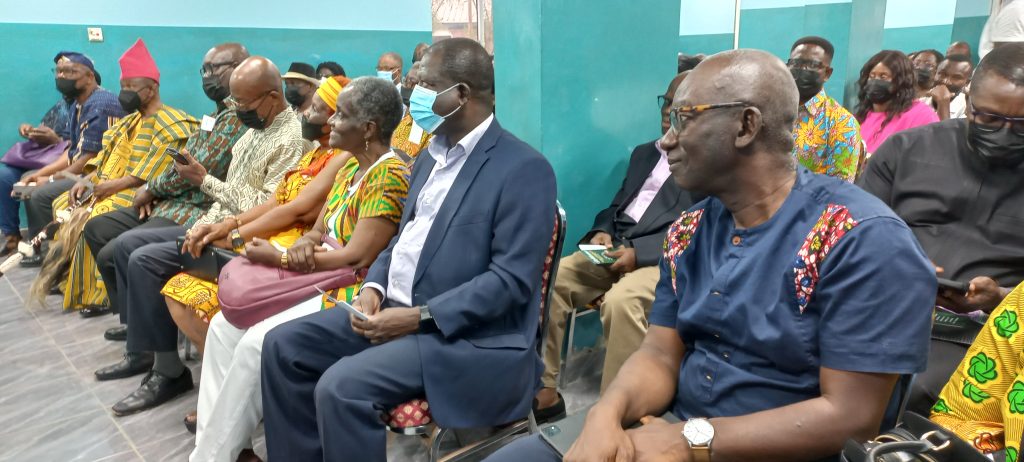By James Amoh Junior
Accra, Oct. 13, GNA – Ms Ajoa Yeboah-Afari, a seasoned journalist and published creative writer, has launched her fifth book, with a call on Ghanaians to uphold family values.
The Book, “New Currency”- a historical novella, which celebrates Akan social norms and values, particularly, the “wonderful feeling of togetherness” and communal living, uniquely associated with the extended family system, invites the reader to be culturally sensitive and to worry about the Ghanaian culture degradation.
Apart from capturing the chilling, historical realities of the 1979 demonetisation, it successfully regains and celebrates the otherwise fading, but precious extended family values.
In the book, the seasoned Author chronicles some aspects of the harrowing military rule of 1979, and narrates the ordeal of a woman about to lose an entire lifetime savings.
Specifically, it recounts the widespread commotion and hardships associated with the introduction of a new monetary currency in Ghana from March 13 – 26, 1979.
The historical novella, set in Sunyani, the Brong-Ahafo regional capital in the same year, captures the widespread public despondency and turbulence associated with the exercise.
The book, thus, provides some insight into the period of the country’s history for adults who lived through the turbulence of 1979 as a necessary reminder; and to the present-day youth some awareness of the happenings then.
The thrilling lime green-looking book with yellow and white title inscription on the cover, and thinly opaque adinkra symbols – Mpatapo (knot of reconciliation) and Sesa wo suban (change or transform your life), reflects the theme of the book published by Smartline Publishers.
The 63-page and 12-chapter book, with a reading time of approximately one hour, is the fifth of the award-winning journalist.

Dr Anthony K. Bonnah Koomson, a former Editor of the Catholic Standard, in a review, said the conversational style used writing the book projected the character of the Akan Language and also highlighted the country’s decaying extended family system and dying Ghanaian traditional value of communal living.
The historical novella, he said, awakened a sense of history and cultural renaissance.
He added that, “in the hands of the younger generation, the country’s cultural heritage is guaranteed some renaissance and individual awakening.”
Dr Koomson, also a lecturer at the School of Communication Studies, University of Ghana, described Ms Yeboah-Afari as a writer and journalist of high esteem who was “passionate as a writer, and inquisitive as a journalist.”
Dr Koomson, whose review was read on his behalf by Mr Emmanuel Dogbevi, Managing Editor, Ghana Business News said, the book was worth commending for celebrating Akan social norms and values, particularly, the “wonderful feeling of togetherness” and communal living, uniquely associated with the extended family system.
Ms Yaboah-Afari described the novella as almost a miracle because it was nearly stillborn and that it was a story she wrote some four decades ago, in March, 1979 soon after the then Government’s shock decision to introduce new currency denominations.
Mr Cameron Duodu, journalist, novelist and editorialist, questioned where the many enthralling literary books from eons were and that he had no doubt that educationists whose policy decision led to the eradication of such fascinating books from the curriculum had very good reasons to do so.

“Good writers are not taught – they absorb good writing unconsciously, and – sub consciously. Then, they disgorge it all, again, unconsciously and sub-consciously,” he said in a review read on his behalf by Mr Albert Kofi Owusu, General Manager, Ghana News Agency, who officially launched the book.
He added that, like the Cedi demonetisation, which had put a lot of the populace in difficulties, Governments should learn from books like the “New Currency” whenever they contemplated taking actions that affected a lot of people.
The first copy of the book was bought by Naa Professor Edmund Nminyem Delle Chiir Vlll, Paramount Chief of Nandom in the Upper West Region, at GHS10,000.00.
Present at the launch was Dr Kwadwo Afari Djan, the longest serving Chairman of Ghana’s Electoral Commission.
Some seasoned journalists, editors, and publishers also graced the occasion.

GNA